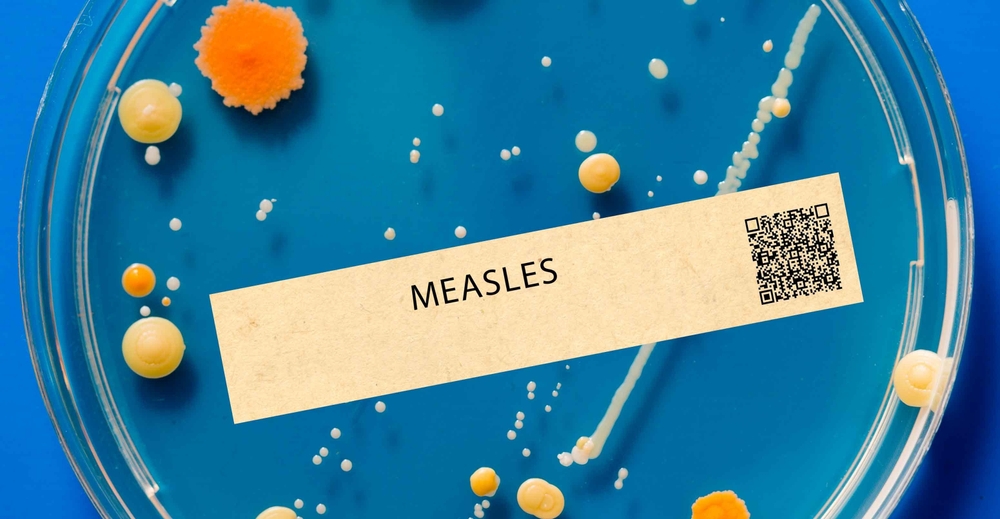Measles Resurgence: Strategies to Halt the Spread
Understanding the Measles Resurgence
In recent years, the world has witnessed a concerning resurgence of measles, a disease once thought to be nearly eradicated in many regions. As public health officials scramble to control outbreaks, understanding the reasons behind this measles resurgence is crucial. This article delves into the causes of this resurgence, the implications for global health, and the strategies being implemented to halt its spread.
Measles is a highly contagious viral disease that was significantly reduced due to effective vaccination programs. However, a combination of factors has led to its comeback. Vaccine hesitancy, fueled by misinformation, has resulted in lower vaccination rates. Additionally, global travel and migration have facilitated the spread of the measles virus across borders.
Public health experts are particularly concerned because measles can lead to severe complications, including pneumonia, encephalitis, and even death. The disease is also incredibly contagious, with the potential to infect 90% of non-immune individuals who come into contact with an infected person. This makes controlling outbreaks a pressing public health challenge.
To combat the measles resurgence, it is vital to understand the disease’s transmission dynamics and the importance of achieving high vaccination coverage. Without widespread immunity, populations remain vulnerable, and outbreaks become more difficult to control.

The Role of Vaccination in Containing Measles
Vaccination remains the most effective strategy in halting the spread of measles. The World Health Organization (WHO) recommends that at least 95% of the population be vaccinated to achieve herd immunity. However, many regions are falling short of this target, contributing to the current measles resurgence.
One significant barrier to achieving high vaccination rates is vaccine hesitancy. This reluctance or refusal to vaccinate despite the availability of vaccines can be attributed to misinformation and distrust in medical systems. To address this, public health campaigns must focus on education and transparent communication to rebuild trust and emphasize the importance of vaccinations.
In addition to addressing vaccine hesitancy, ensuring the accessibility and availability of vaccines is crucial. This may involve strengthening healthcare infrastructure, particularly in under-resourced areas, to ensure that vaccines are readily available and that healthcare providers are equipped to administer them.
Lastly, targeted vaccination campaigns in high-risk areas can help to quickly boost immunity levels and prevent further spread. These campaigns often involve mass immunization drives and outreach programs to reach populations with low vaccination coverage.
Public Health Policies and Measles Control
Effective public health policies are essential in controlling the measles resurgence. This includes implementing surveillance systems to rapidly detect and respond to measles cases. Early detection allows for swift action, such as isolating cases and identifying potential contacts who may need vaccination or monitoring.
Governments and health organizations must also work collaboratively to standardize and harmonize vaccination schedules. This helps to ensure consistent vaccination coverage across regions and reduces the likelihood of measles outbreaks due to gaps in immunity.
International cooperation is also vital, as measles knows no borders. Sharing data and resources between countries can help to track and manage outbreaks more effectively. Global initiatives, such as the Measles & Rubella Initiative, play a crucial role in coordinating efforts to eliminate measles worldwide.
Furthermore, policies that support research and development of new vaccines and diagnostic tools can contribute to long-term measles control. Investing in these areas helps to advance understanding of the disease and improve responses to outbreaks.
Community Engagement in Measles Prevention
Community engagement is a cornerstone of successful measles prevention strategies. Engaging communities in dialogue about the importance of vaccinations can significantly impact public health outcomes. This involves collaborating with local leaders, influencers, and community organizations to spread accurate information and dispel myths about vaccines.
Education initiatives that target parents and caregivers are particularly important. These programs can provide the knowledge and resources needed to make informed decisions about vaccinating children. Schools can also play a role by implementing vaccination checks and educational programs to increase awareness.
Social media platforms offer another avenue for community engagement. By leveraging these platforms, health organizations can reach broader audiences with credible information, counteract misinformation, and encourage vaccination.
To ensure sustained community engagement, it is essential to tailor communication strategies to the specific cultural and social contexts of different populations. This ensures that messages resonate with diverse audiences and effectively promote vaccination uptake.
Conclusion: Combating the Measles Resurgence
The measles resurgence poses a significant threat to global health, but it is a challenge that can be overcome with coordinated efforts. By focusing on vaccination, implementing effective public health policies, and engaging communities, we can halt the spread of measles and protect vulnerable populations. Continued vigilance and cooperation at international and local levels are essential to maintain progress and ultimately eliminate measles once and for all.